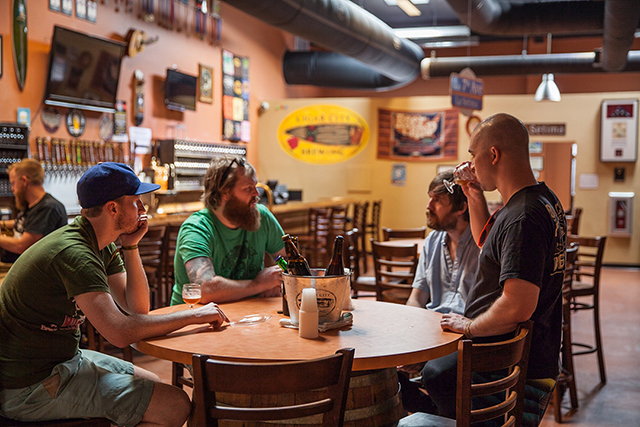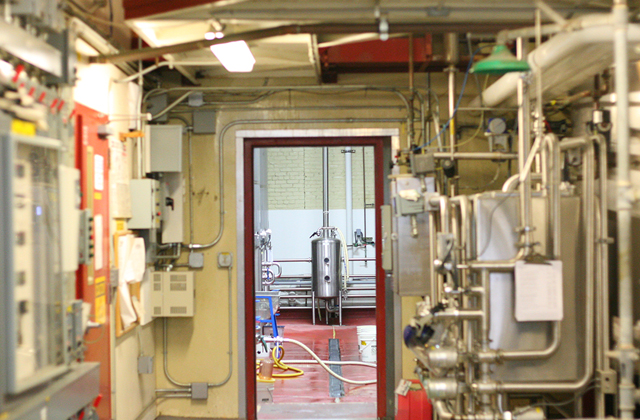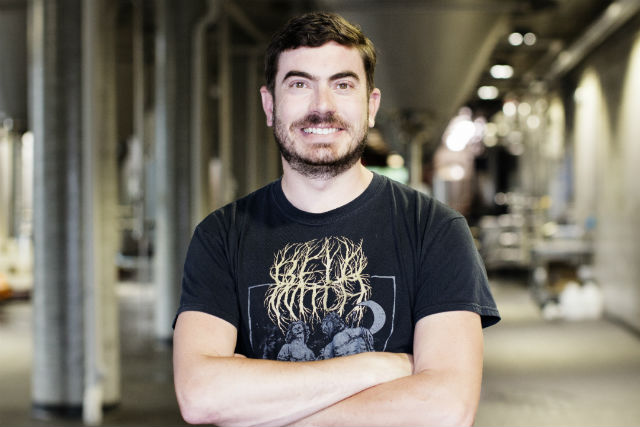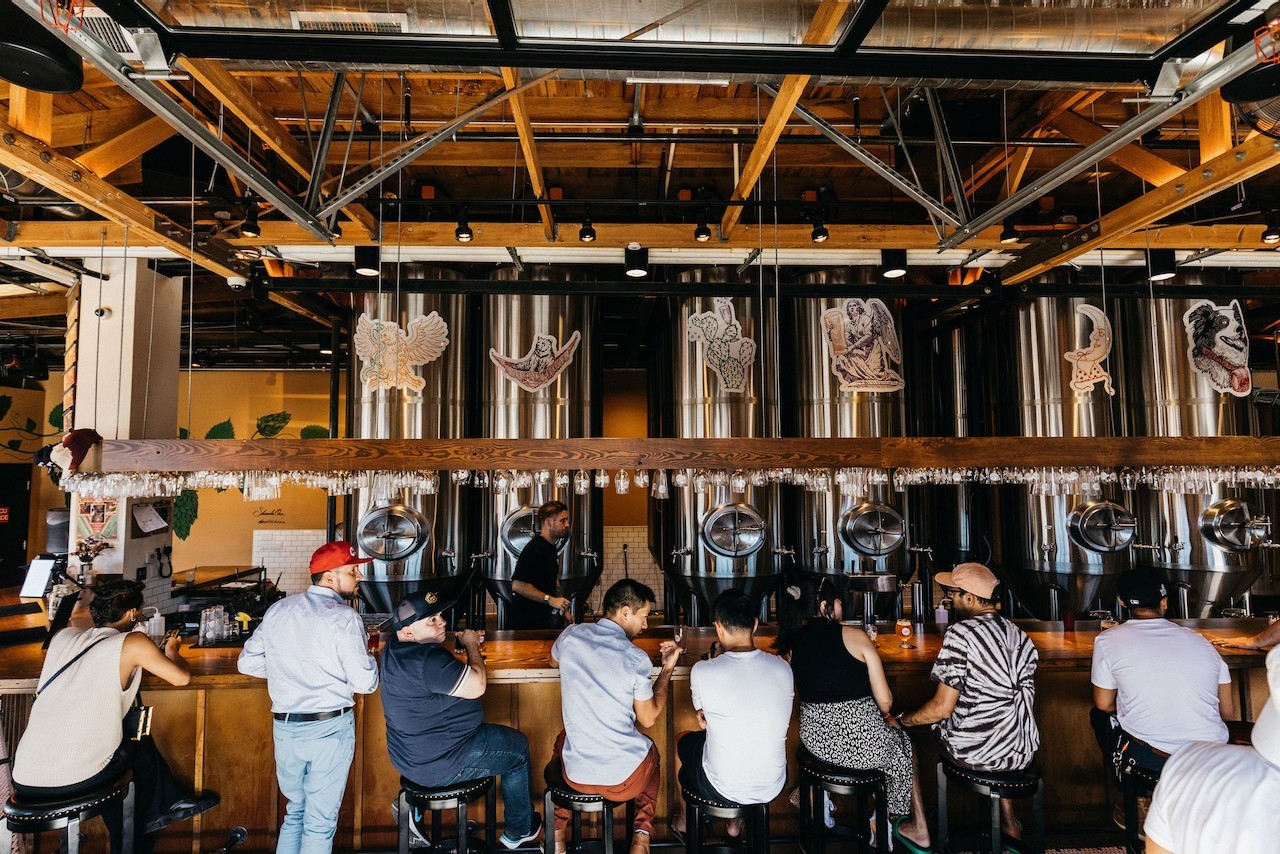
For breweries, as with any industry, maintaining a healthy relationship and retaining members of your sales team is vital to any company that looks to build itself up.
For breweries that utilize a sales team, keeping communication open, understanding the job market and what other places can offer your employee is paramount.
North Coast’s Doug Moody has seen plenty of trends in sales retention since the California brewery opened its doors in the late 1980s.
Lately, the brewery has helped develop their sales team — what it calls their “distributor managers” — nationwide by adapting to keep their team in the loop with developments.
“We’re giving them every tool that they need to be successful,” he said. “We are constantly surveying the market to make sure that our salaries are competitive, that our benefits are competitive. … We’re constantly researching the market and making sure that whatever benefit that we may not have been offering, if there something that’s going to make it better for our organization, we add those.
“We are asking our employees all the time what’s out there, ‘what are we not giving you?’ And I think my salespeople know that my phone is on 24/7/365. If they have issues, I’m here to help them and they know that.”
Two Brothers co-founder Jason Ebel said some benefits for employees are monetary and some of it is rewarding employees for goals and milestones.
“For instance, when a brewing employee reaches their five-year milestone, we make sure they are able to take the trip to the Great American Beer Festival with our team and have that experience,” he explained
Two Brothers has a 90-day trial period for all new employees. During that time, it tries to evaluate a number of different aspects.
“Everything from initiative to attention to detail to enthusiasm,” Ebel said. “You’re never going to get it right 100 percent of the time, but having that plan of action helps weed out a lot of the people that don’t fit within our culture.”
Moody says that North Coast takes a considerable amount of time vetting the person before it brings them on board the sales team.
“We want to make sure that we have somebody who understands the company,” he said. “Integrity is paramount to how we do business and how we want to be represented by salespeople, and if we’ve got any question about that we just don’t go any further.“
He said once an employee is hired and ready to sell, the training doesn’t stop.
“The training is ongoing,” he said. “Our training never ever ends because what we’re doing, it’s very fluid. Things are changing and we’re trying to stay on top of things and we want our salespeople to be the same way.
“So we work with them and we tell them ‘You may think you know it all, but nobody does.’ We really encourage our guys — even though they may be in different parts of the country and they have different types of markets they are working in because of distributor issues — to communicate and talk to each other on a regular basis. We really encourage that kind of communication. I think it’s beneficial to everybody.”
North Coast currently has 17 people on the street, with a Western and Eastern Chain Manager as well.
“We’ve had really very good success in maintaining these people,” Moody said. “We take very good care of our employees no matter what [job] they’re doing.”
Moody said in his new role he gets out to spend time with his sales staff on a regular basis.
“I love their passion. They’ve taken ownership and they’re selling our beer as if they own the company, which I love to see,” he said. “The things that we are really trying to let our consumers know about North Coast is not that we just make great beer, but the way we do it is a way to have as little little impact on the environment as we can.
“I think there is a separation, something a little different between us and a lot of the other breweries. I think our our sales managers appreciate that and take ownership of it and they’re doing a great job of sharing that with our distributors and the consumers that they work with.“
From a general retention point of view, Two Brothers has had a fair amount of success keeping long-term employees, Ebel said. They have a number of employees that have been there for over a decade.
“We love having them,” he said. “I think we try to build a culture where people can enjoy working here. We welcome ideas from anyone and everywhere and give our employees an opportunity to express themselves and their ideas. It’s very important to us.“
He noted that the sales side is definitely harder. They have a management team that has been with the brewery for years, but Ebel did say that they are always going to have turnover on the ground level.
“It’s a hard job. You are out there on the streets every day, battling it out and hearing a lot of ‘No’s.’ It can wear people down.”
One of the biggest things Ebel said the brewery did for its sales department was create and execute a training program.
“We spend a lot of time training and guiding our sales team, helping them learn about the business, and trying to put them in the best position to succeed,” he said. “It’s something we’re proud of and something we think really pays off.”
They also try our best to promote from within whenever possible.
“Retention is important to us across all of our companies,” Ebel said.
North Coast began with brokers before 2010, but began a sales team to align to its values after that and many still are there.
“We have had areas where we just were not able to penetrate the market sufficiently and we had to pull back from having people on the street there,” Moody said. “But the turnover has been surprisingly minimal. My managers have been in place for over five years. My chain managers — which are the newest position — they are both original chain managers that I hired two years ago. They are doing great work for us.
“We have our salespeople engaged with what we do from the beginning of any particular project we’re working on so they can be right there in the decision making process. I think that ensures they’re buying into what we’re trying to do. We really, really, listen to our sales people. They’re the ones that are on the street. They’re the ones that are actually dealing with the distributors, with the consumers and with the retailers. We really value the experience they get that they could share with us. What they have to bring to the table has a major impact on the decisions we make about how we run our company.“





Be the first to comment